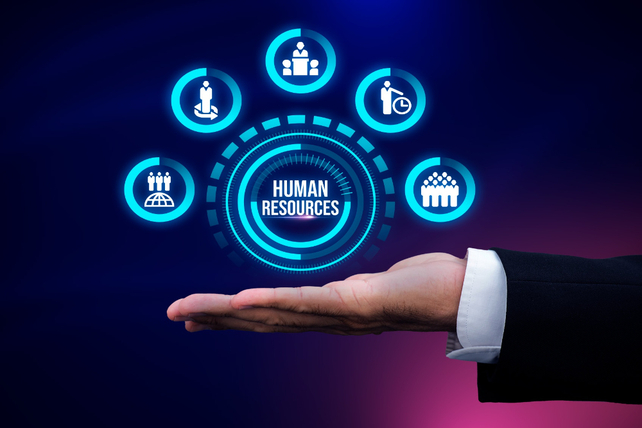
The human resources industry is perpetually evolving, responding dynamically to the broader economic environment, technological advancements, and changes in workplace culture. As we venture into 2024, several trends are emerging that anyone involved in HR should be aware of. These developments are not only redefining the landscape of recruitment and employee management but also ensuring that HR continues to be a vital component in shaping organizational strategies. Here, we delve into five pivotal HR trends for 2024 and beyond, each pointing towards a more flexible, inclusive, and technologically integrated future.
A Focus on Staff Retention
In recent years, the human resources sector has seen a significant uplift in the skill levels of its workforce, thanks primarily to robust upskilling and effective training programs. This enhancement in skill sets is a double-edged sword; while it elevates the quality of HR professionals, it also means that organizations must exert more effort to retain top talent. Companies are increasingly recognizing that high employee turnover can be costly and disruptive.
To combat this, an emphasis on creating a culture of appreciation and recognition is crucial. Organizations need to provide more than just competitive salaries; they should cultivate an environment where employees feel genuinely valued. This includes everything from regular feedback and rewards to career development opportunities tailored to individual growth aspirations.
Flexible Working
The trend towards flexible working arrangements continues to strengthen in 2024, with more companies acknowledging the benefits of such practices. These include higher employee satisfaction and reduced operational costs. For HR departments, particularly in larger, geographically dispersed companies, the challenge lies in managing a remote workforce effectively. This includes ensuring consistent communication and maintaining a strong company culture across all locations.
Businesses must invest in robust virtual infrastructures. Tools such as cloud-based platforms, virtual receptionists, and advanced project management software can help support remote employees efficiently, ensuring that productivity and engagement levels remain high.
Collaboration Between IT and HR
The intersection of information technology and human resources is becoming increasingly critical. As new workplace technologies emerge, they bring the potential to enhance efficiency and streamline processes. However, the effectiveness of these tools depends largely on proper implementation and user familiarity.
Organizations should focus on fostering strong collaboration between their IT and HR departments to maximize the benefits of technological advancements. This might involve joint training sessions, shared objectives, and regular strategy meetings to ensure both departments are aligned and can leverage technology to improve recruitment, onboarding, employee management, and more.
Skills Over Qualifications
There is a growing shift towards prioritizing skills and practical experience over formal qualifications in the HR field. Many firms are moving away from rigid degree requirements, a trend often referred to as breaking the “paper ceiling.” This shift allows a broader range of candidates to enter the field, enriching the talent pool with diverse experiences and perspectives.
This trend is particularly advantageous for start-ups and innovative companies looking for dynamic team members who can contribute immediately without the need for extensive on-the-job training. It also opens doors for talented individuals who may not have had access to traditional educational pathways but possess valuable practical skills.
Generative AI
Generative artificial intelligence is set to play a transformative role in HR. Tools like ChatGPT and others are becoming more integrated into daily operations, assisting with everything from recruitment to personal development. These AI technologies can analyze vast amounts of data to provide insights that would be unfeasible for human workers to generate at the same speed.
However, the challenge lies in integrating AI tools in a way that complements human intelligence rather than replacing it. HR professionals will need to strike a balance between leveraging AI for efficiency while preserving the essential human touch that is critical in managing and motivating people.
Conclusion
The landscape of human resources is undergoing significant transformation, driven by technological advancement and changing work cultures. For HR professionals, staying ahead of these trends will be crucial to not only attract and retain top talent but also to play a strategic role in the growth and adaptation of their organizations. As we navigate through uncertain economic times, these trends offer pathways to more resilient and adaptive HR practices that could define the future of work.










